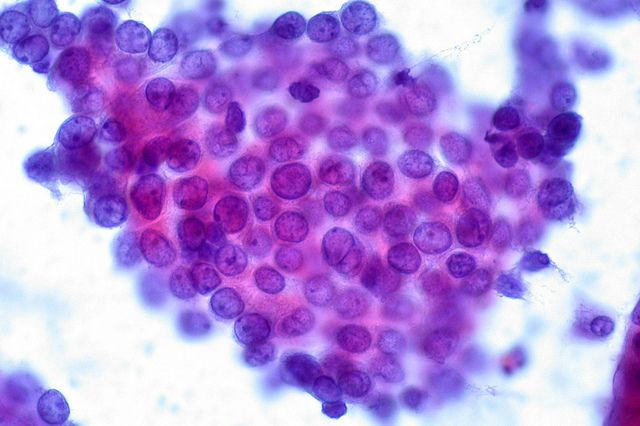Bayer’s Nexavar Stopped Severe Thyroid Cancer In Clinical Trials, Drug Makers Seeking Broader FDA Approval

Nexavar, the liver cancer drug manufactured by Bayer AG and Onyx Pharmaceuticals Inc., stopped thyroid cancer tumor growths in clinical trials, researchers announced.
University of Pennsylvania scientists conducted the randomized Phase III clinical trials and reported the drug ceased thyroid cancer tumor growth and provided patients with a five-month respite. The findings were presented on June 2 at the American Society of Clinical Oncology Annual Meeting in Chicago, Ill.
"Until we began using sorafenib, we had no medical options for these patients who suffered due to progression of their disease. Now, we can give patients hope - a breakthrough medication that can stop the progression of the disease for 5 months. This trial is the first step in a promising series of clinical trials to identify new drugs that are shifting the horizon for patients with advanced thyroid cancer," said Marcia S. Brose, lead author and assistant professor of Otolaryngology and Head and Neck Surgery, reported Medical News Today.
In the trial, more than patients with severe thyroid cancer were recruited, out of which 207 took Nexavar and 210 received the placebo. They found 12 percent of patients on Nexavar showed tumor reduction with 42 percent reaching stable disease mode after six months, while only 0.5 percent experienced reduction on the placebo drug with 33 percent reaching stability after six months.
In addition, patients on Nexavar had 10.8 months of progression-free survival while placebo patients had 5.8 months. However, researchers have not obtained the overall survival rate after Nexavar treatment.
Nexavar is a multikinase inhibitor drug that stops division and growth of tumor cells and initiates cell death. It is currently FDA-approved for liver cancer treatment and advanced renal cell carcinoma, the most common form of kidney cancer, and the drug makers will use the recent clinical trial findings to seek FDA approval for broader use.
While 90 percent of thyroid cancer cases are successfully cured through complete surgical removal or radioactive iodine therapy, 10 percent of those cases don't respond to these treatments and have tumor growth advance to lungs, bones, lymph nodes, and other areas.
According to the National Cancer Institute, more than 60,000 new cases of thyroid cancer will arise this year in the country, and experts predict the new drug could potentially help five percent of patients afflicted with the cancer.
Published by Medicaldaily.com



























